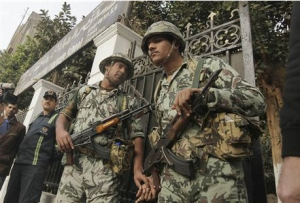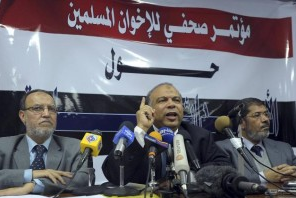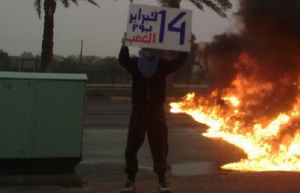By Ron G. and Daniel N.
Despite the risks, both the SCAF and the Muslim Brotherhood have much to gain by exploiting anti-western conspiracies which are rooted in Egyptian Society.
Egypt continues to reel from the aftermath of the recent high profile raids against foreign-backed NGO’s by state security forces. Egyptian human rights watchdogs have condemned the raids as an effort by the SCAF to subdue the groups which are fomenting criticism against its policies, while ignoring the large amounts of funds being illicitly transferred to Islamist parties from the Persian Gulf. The United States and European Union have also stepped up their criticism, with Washington hinting at cutting off its longtime financial aid package.

The American threats have sparked an outcry amongst Egypt’s conservative groups, including the Muslim Brotherhood’s Freedom and Justice Party, which is slated emerge the dominant party in parliamentary elections. The FJP’s legal advisor, Ahmad Abu-Baraka, said on Sunday that the party will ask the newly-elected parliament to abolish the US aid, which he claimed “serves as a means to interfere with Egypt’s internal issues’; reportedly adding that ‘America and its money can go to hell”.
American foreign aid to Egypt is estimated at roughly 2 billion dollars annually, with $1.3 billion infused to military support. Egypt has enjoyed this financial support since the signing of the peace treaty with Israel in 1979, in which the aid was a crucial factor in keeping the country’s crumbling economy functioning at a basic level. Most recently, governmental officials have warned that Egypt’s national economy is currently facing its most serious crisis in years. Since the January 2011 revolution, the economy has suffered repeated blows to tourism and foreign investment as a result of the unrest, in addition to ongoing attacks on its natural gas pipeline in the Sinai Peninsula. Continue reading Egypt’s Anti-Western Future: Rhetoric or Reality?

